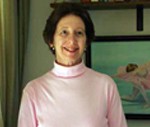Why Not Say What Happened: A Sentimental Education by Morris Dickstein (Liveright Publishing Corp., 2015)
By Sheila Orysiek

SAN DIEGO — Morris Dickstein was born into a family of Orthodox Jews who brought with them the anxious and narrow life view of the Eastern European shtetl to New York City’s Lower East Side. He was given a religiously based education at which he excelled and which gave him the praise and attention he relished. It also gave him a sense of safety as his life expanded into the frightening world outside the protective walls of family and faith.
Obviously intellectually gifted, his parents gave him all they could afford – the rest was supplied by scholarships. He attended Yale and Columbia Universities, as well as accepting a special scholarship to Cambridge University in the UK, eventually earning a PhD in Philosophy. In this autobiography, Dickstein takes the reader from his earliest years to the point at which he graduates and begins his life as a faculty member at Queens College, CUNY, as well as writing for various publications as a literary/arts critic.
Along the way, he describes his travels through Europe and his struggles with religious commitment and the difficulties in adjusting to the tempo of life necessary for success. He sought the help of psychoanalytic therapy because of his hesitancy to face the pressures we all do on the road to responsible adulthood. After years of indecision, he marries, has two children, and encounters and reacts to the roiling changes in American society in the 1960’s.
Dickstein and his wife (whom he only identifies as “L”), join the edges of the beat/hip generation; and participate in the marches against the Vietnam War. He enjoys the anti-establishment music, as well as taking part in the anarchic student revolution including demands made upon and the illegal occupation of various universities including Columbia.
The book includes extensive discussions in the author’s major area of study: literature, prose, poetry, written critique, theatre and film. Much of this – especially the extensive and detailed exposition of Romantic poetry – is probably beyond the ken or interest of the general reader. He paints a picture of a closed clique where a few chosen initiates gather around a professor in his study/office. Each member of the chosen circle offering analysis and re-analysis of a poem, a work of fiction, and/or an author, hoping to display layers of “knowing.” Dickstein’s intentional obscurity is the coin of the realm in this rarified environment of academe and the literati of literature who inhabit those hallowed halls.
Dickstein has a love of language – its use and orchestration: words, phrase, cadence and tempo with which a reader with the same passion can easily identify. But the reader might wonder if a popular author of fiction (Charles Dickens. for example) – actually intended to create stories and characters of infinite complexity that require intense study? Or, did Dickens simply enjoy writing a story that would sell and that others would want to read? It reminded me of the often overwrought twists and turns assumed to exist in the words of the Torah. Can it be that it was just meant to be read and the words taken at their simplest?
Dickstein is at his best when he brings back to life the first two decades after World War II. He wonderfully describes the time he spent working as a teenager in the resort hotels in the Pocono and Catskill mountains, which were once the epitome of a summer vacation for millions of Jewish families living in the cities of the northeast: New York City, Philadelphia, etc. His description of his travels in Europe are also charming.
*
Orysiek is a freelance writer who specializes in the arts and literature. She may be contacted via sheila.orysiek@sdjewishworld.com. Comments intended for publication in the space below must be accompanied by the letter writer’s first and last name and by his/ her city and state of residence (city and country for those outside the U.S.)